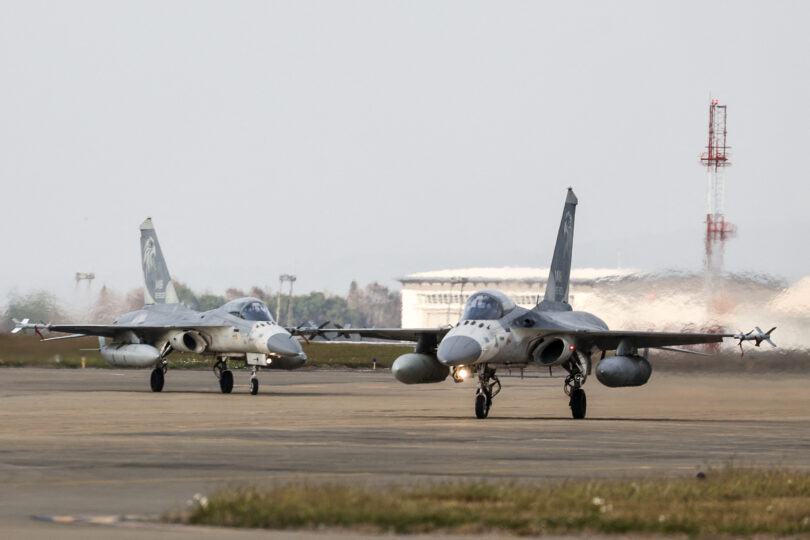Taiwan sends forces in response to China ‘live-fire’ drills off island
Taipei, Taiwantaiwanchinadefence
01 March,2025
UPDATES with Taiwan saying PLA has left ‘exercise zone’
China has ramped up the deployment of fighter jets and warships around Taiwan in recent years to press its claim of sovereignty over the island, which Taipei rejects.
Taiwan’s defence ministry said China’s move “is completely contrary to its repeated claims of ‘peaceful coexistence’ principles” and vowed to “continue our efforts in force buildup and readiness”.
Beijing’s foreign ministry declined to comment on Taiwan saying China has set up a drill zone for “shooting training”.
“This is not a question on foreign affairs,” spokesman Lin Jian told reporters.
China’s defence ministry did not reply immediately to a request for comment from AFP.
– Potential flashpoint –
Taipei’s defence ministry said China’s actions in the region, including live-fire drills off Australia and Vietnam, “prove that China is the only and biggest threat to peace and stability in the Taiwan Strait and the Indo-Pacific region”.
The drills also come after Taiwan seized a Chinese-crewed cargo ship on Tuesday suspected of severing a subsea telecoms cable serving Taiwan’s Penghu island group.
There is growing concern in Taiwan over the security of its cables after a Chinese-owned cargo ship was suspected of cutting one northeast of the island this year.
China’s Communist Party has never ruled democratic Taiwan but Beijing has threatened to use force to bring the island under its control.
Taiwan fears China could sever its communication links as part of an attempt to seize the island or to blockade it.
Taiwan is also a potential flashpoint for a war between China and the United States, which is the island’s most important backer and biggest arms supplier.
While the United States is legally bound to provide arms to Taiwan, Washington has long maintained “strategic ambiguity” when it comes to whether it would deploy its military to defend it from a Chinese attack.
Despite strong bipartisan support in the US Congress for Taiwan, there are fears that President Donald Trump might not consider the island worth defending if China attacked.
Taiwan President Lai Ching-te has already vowed to boost investment in the United States to reduce the trade imbalance and spend more on the island’s military, while his government is also considering increasing US natural gas imports.
Beijing regards Lai as a “separatist” and has staged several rounds of major military exercises since he came to power last May.
The dispute between Beijing and Taipei dates back to the civil war between Mao Zedong’s communist fighters and Chiang Kai-shek’s nationalist forces, which fled to Taiwan in 1949 following their defeat.
bur-aw/amj/pbt
© Agence France-Presse







